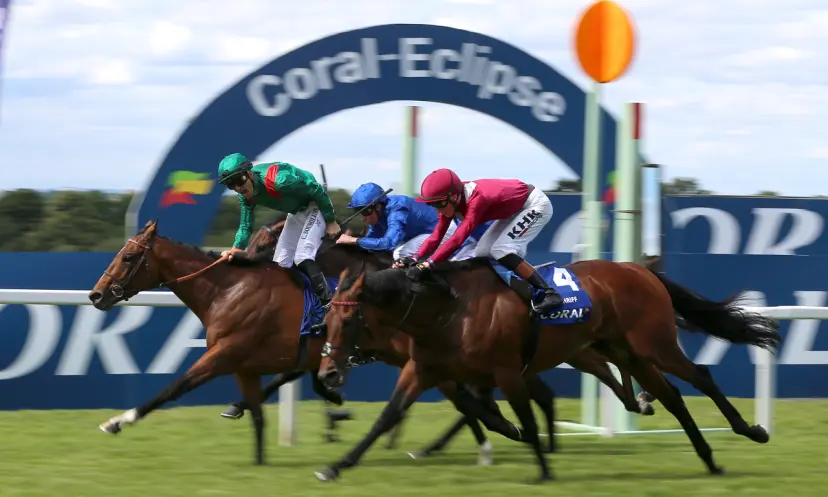Portugal enjoy irony of victory as Euro 2004 ghosts banished, but must now rebuild
Published:
Holly Thackeray | July 11, 2016
There was to be no repeat of a Greek tragedy this time for Portugal, as captain Cristiano Ronaldo triumphantly lifted the European Championship trophy aloft in front of home French fans on Sunday evening, in an encounter littered with ironies.
“Vamos! Vamos!” were the Spanish celebratory words the Real Madrid superstar audibly roared from the podium, as Ronaldo finally tasted silverware with his nation, something that seemed almost impossible a mere month ago.
Or perhaps even around 90 minutes beforehand, when the skipper gave in to a knee injury and was stretchered off the pitch in pain.
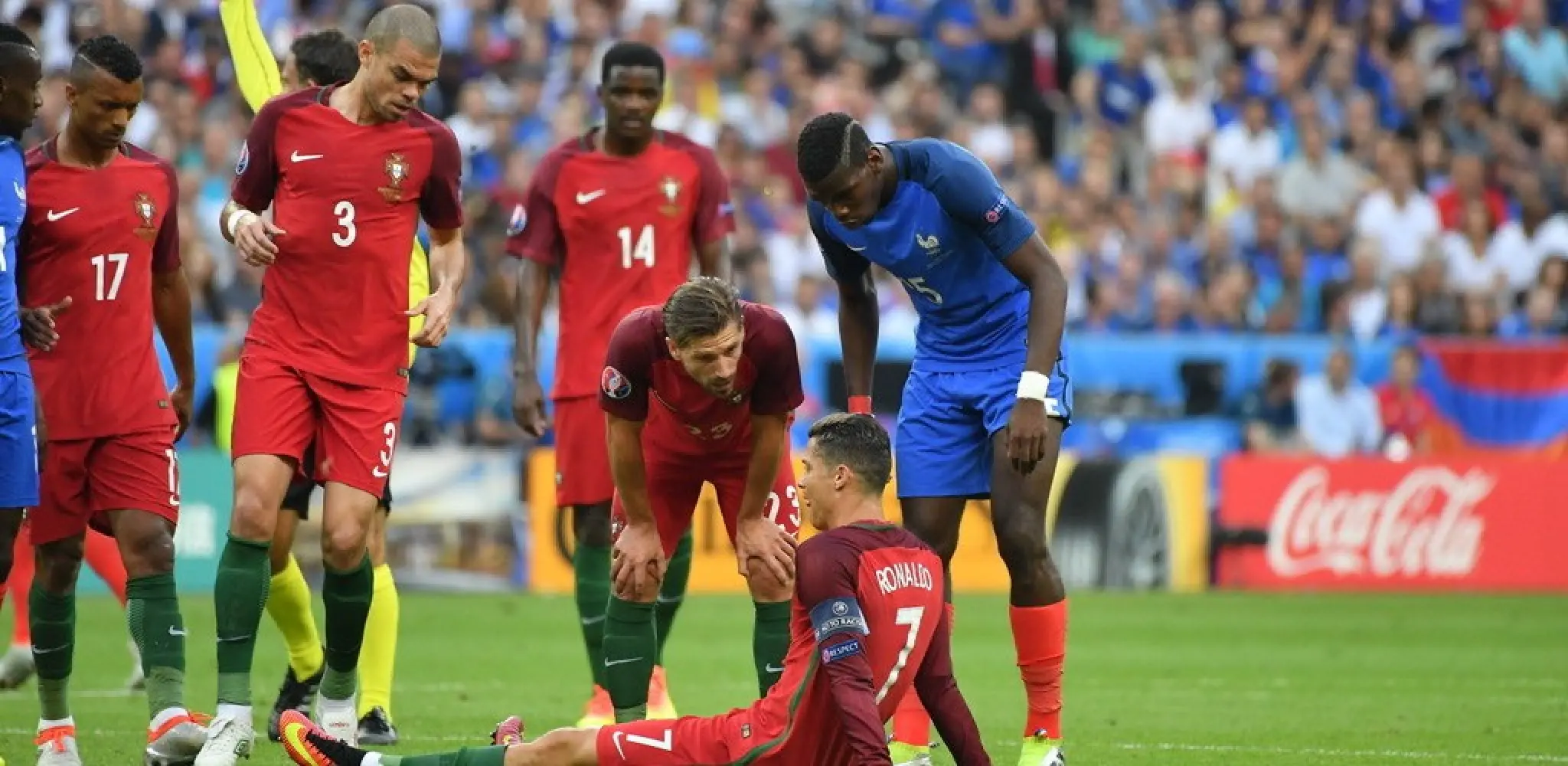
Real and Navigators icon Ronaldo was supposed to be the star of the show, but he didn’t even reach the half-time mark. Though, in this game doused in irony, Portugal (slashed after last night from 40/1 to 25/1 by Coral to win the 2018 World Cup) rallied without their talisman to prove themselves more than a one-man show.
For the Navigators inflicted on France practically a mirror image of the events on Portuguese soil at Euro 2004, when the star-studded Iberian outfit were stunned by underdogs Greece in the final; a team that had trudged to the showpiece having defended for their lives and virtually reinvented the concept of smash-and-grab glory. The parallels were all too clear.
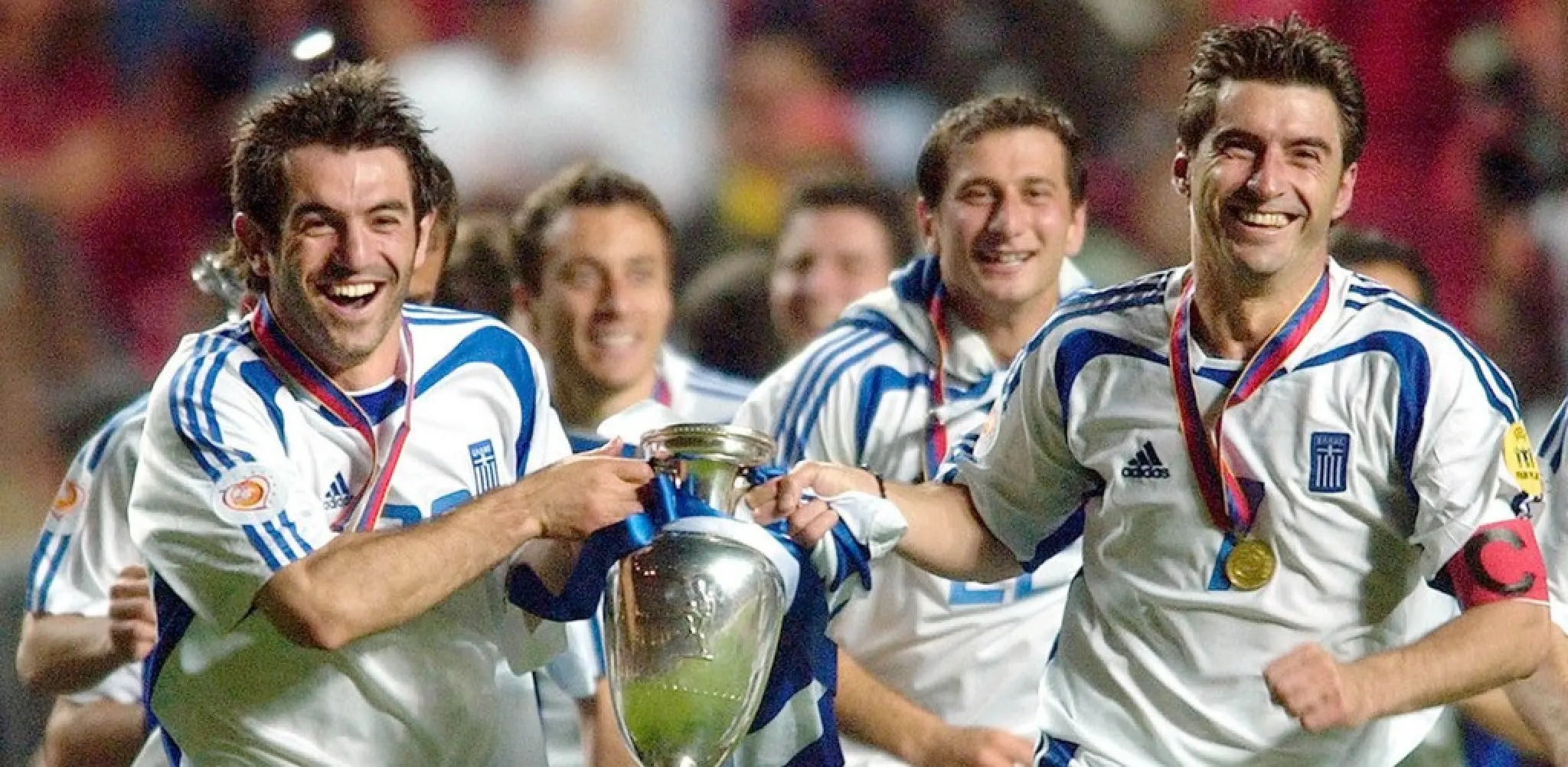
As hosts of 2004 that possessed some of the finest in-form players in the world, with the backing of a partisan Portuguese crowd – it was Portugal’s to lose, just as it was for the French.
Arguably the most complete squad in that competition – a reliable number one, the diligence of Ricardo Carvalho in defence, a teenage prodigy in Ronaldo, plus the sparkle and guile of midfield legends Luis Figo and Deco at their peak – fell unbelievably at the last hurdle.
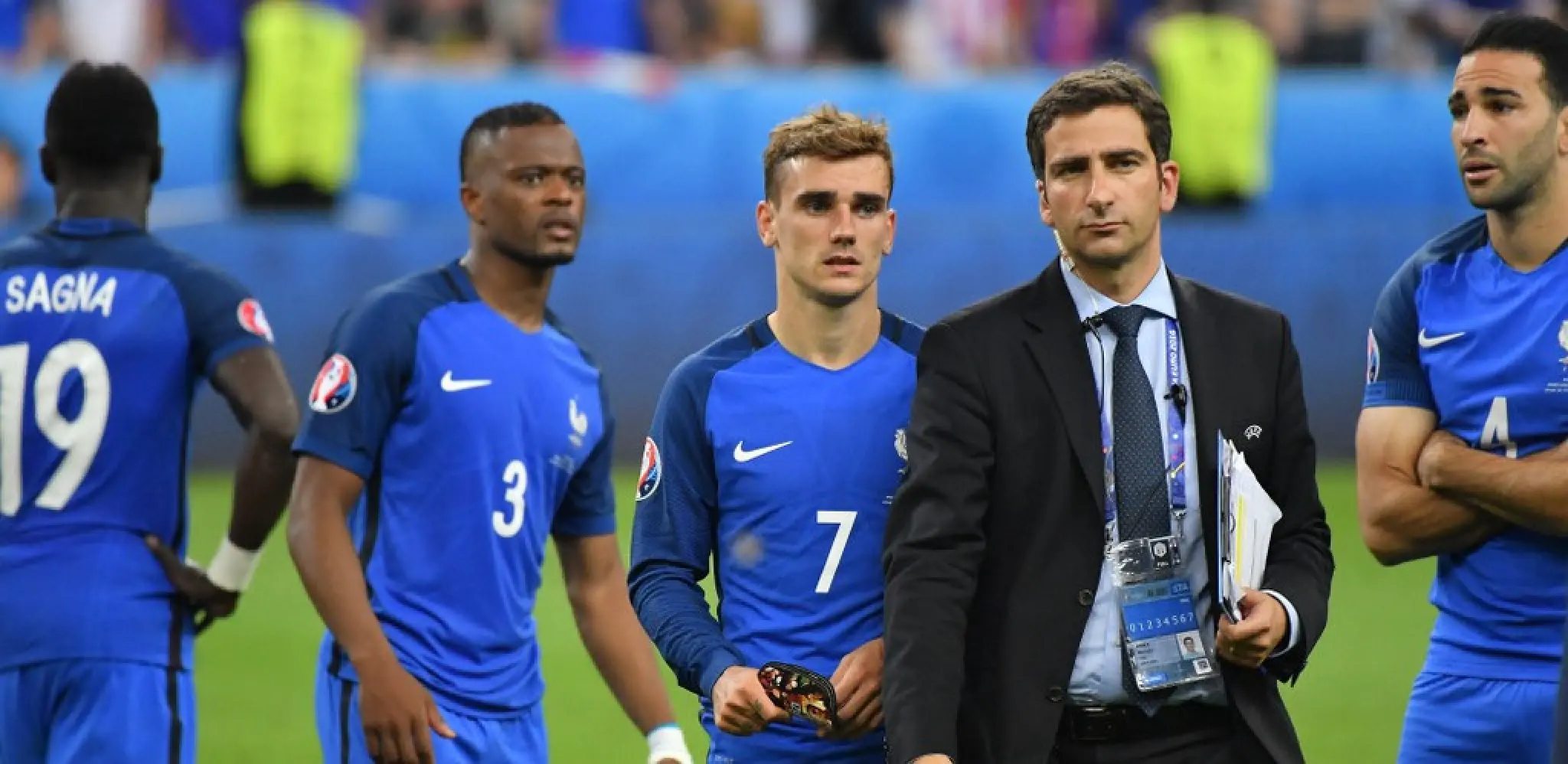
The same befell Les Bleus as, for all the goal threat and greatness of Antoine Griezmann, Olivier Giroud, Dimitri Payet and Paul Pogba, none could posit an answer to Portuguese pride and resilience. So, history repeated itself, and this time Portugal were the protagonists spoiling the party.
Eder from the ashes
Just as Greece and their unlikely heroes gatecrashed 2004, substitute Eder was the surprise game-changer to strike the deadly blow in extra-time after a turgid tussle saw Euro 2016 provide the first final to end 0-0 in normal time.
A powerful if speculative strike from Eder outside the area rocketed into the bottom left-hand corner behind a tumbling Hugo Lloris and it was game over for exhausted Les Bleus bodies, the hope visibly sucked from support around the stadium.
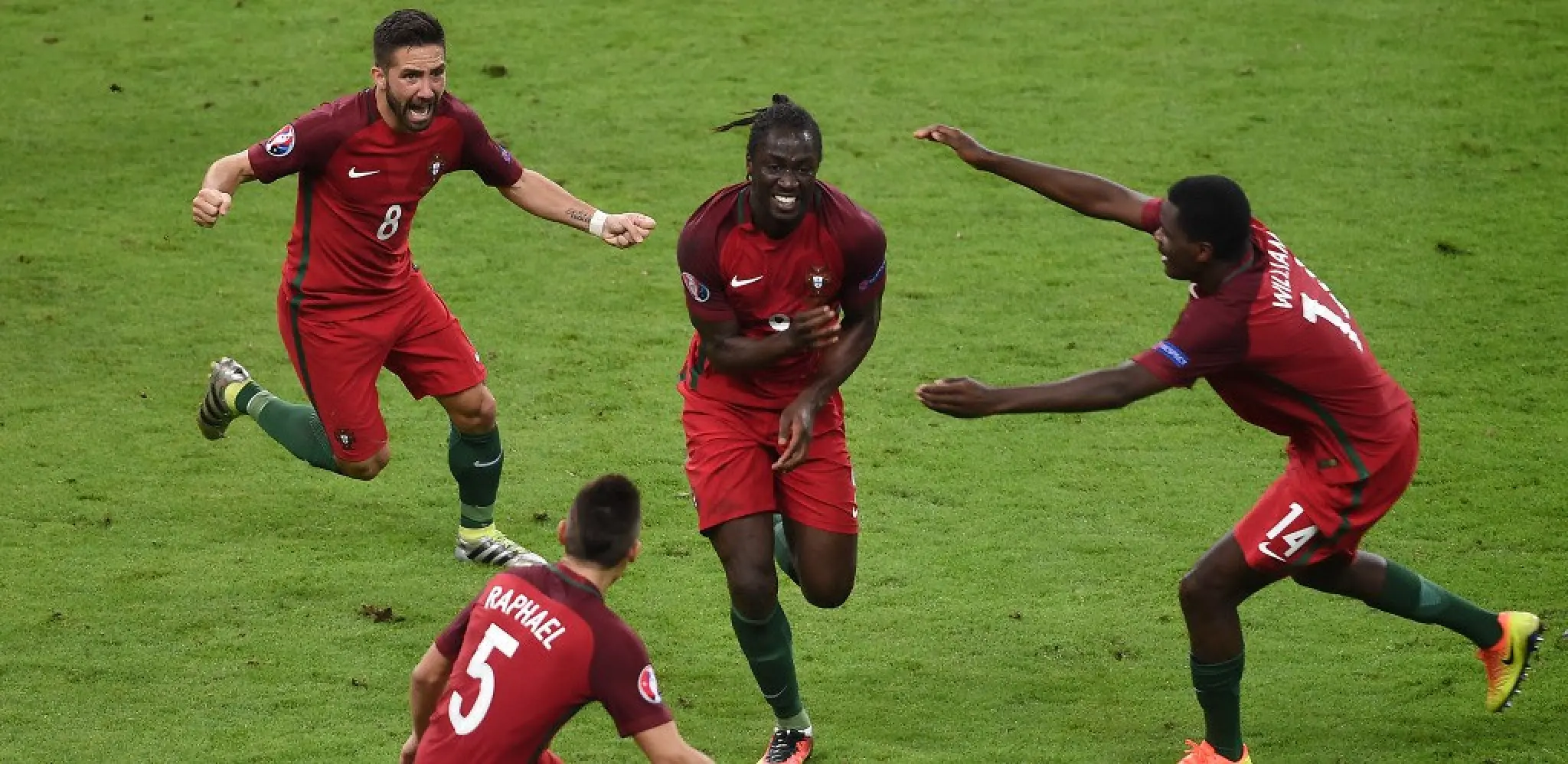
It will almost certainly be the crowning moment of far from prolific frontman Eder’s career, though he may not be so popular at new permanent club Lille, with whom he spent half of last season on loan in Ligue 1 from Swansea City.
Of course it had to be Eder, much-maligned by many in his addition to Fernando Santos’ roster after scoring only six club goals last term, to make the difference – not a scorer easily in double figures – such as Ronaldo, Griezmann, Giroud.
Irony from the outset hinted it was not France’s night
And so, with one fell swoop, unlikely Eder, just like Theodoros Zagorakis before him, had banished the demons from that humiliating home loss to grinders Greece, helping his nation emulate the Pirate Ship and secure their maiden major international trophy.
But, wind the clock forward to France 12 years on and, despite the odd sneaking suspicion the Navigators could have a good run after squeezing through the group stage, few pundits would have predicted this could be Portugal’s time. Until they finally secured their first victory in in 90 minutes against Wales in the semis, teasing that they were ready to turn the tables.
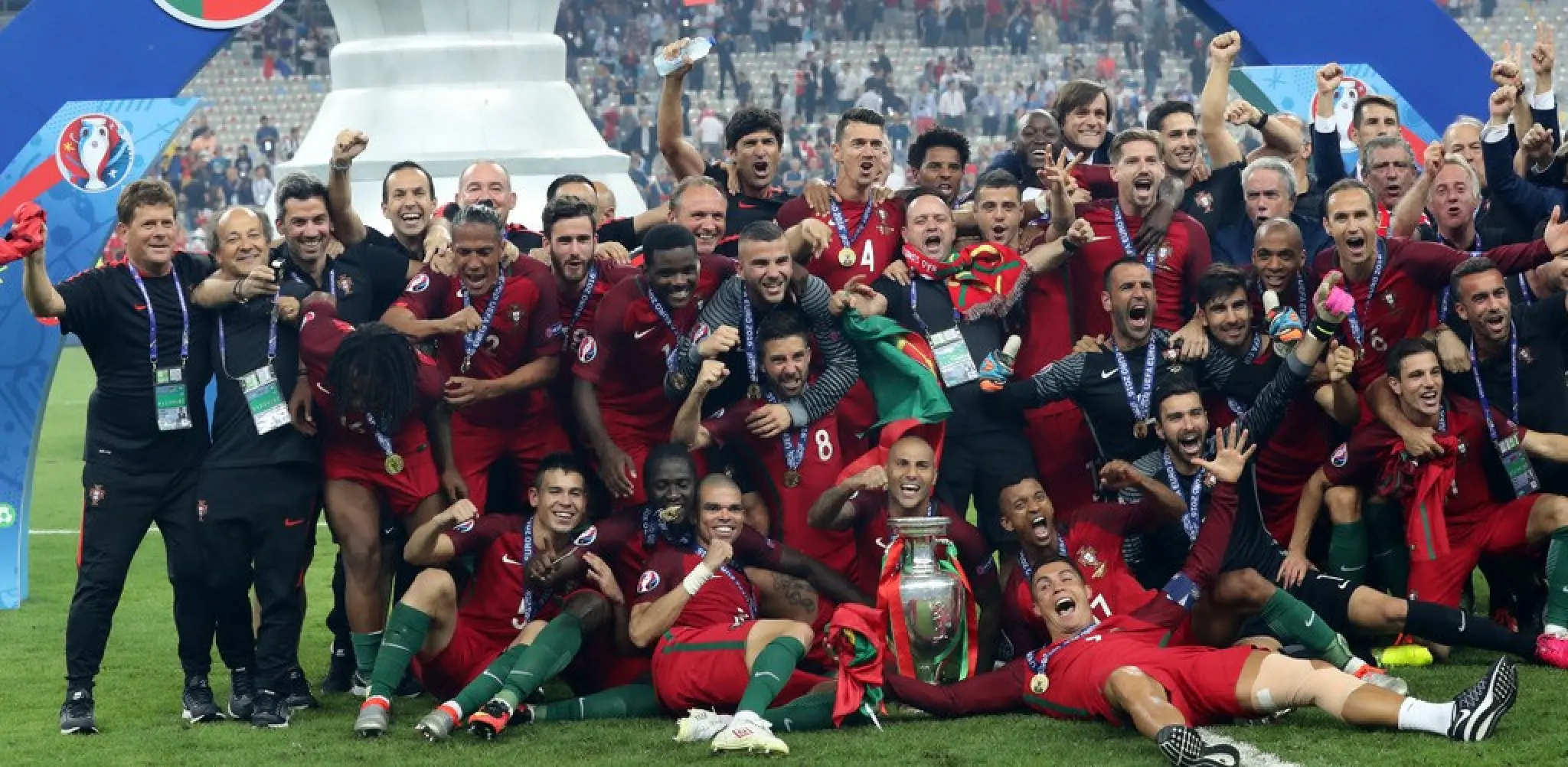
Indeed, by battering Bleus dreams and beating the tournament favourites, Portugal became the first team to qualify for the knockout rounds via a best third place group finish and the amazingly go on to win the lot.
From Ronaldo’s early injury, to the growing parallels with the Euro 2004 final and the standing of both sides, the irony of this win will not have been lost on Les Bleus at all but, they have shown plenty at the tournament to proud of.
Ronaldo finished the 2004 final as a teenager in tears, and his emotion bubbled over in St-Denis again, but this time with ecstasy as a winner after the last whistle.
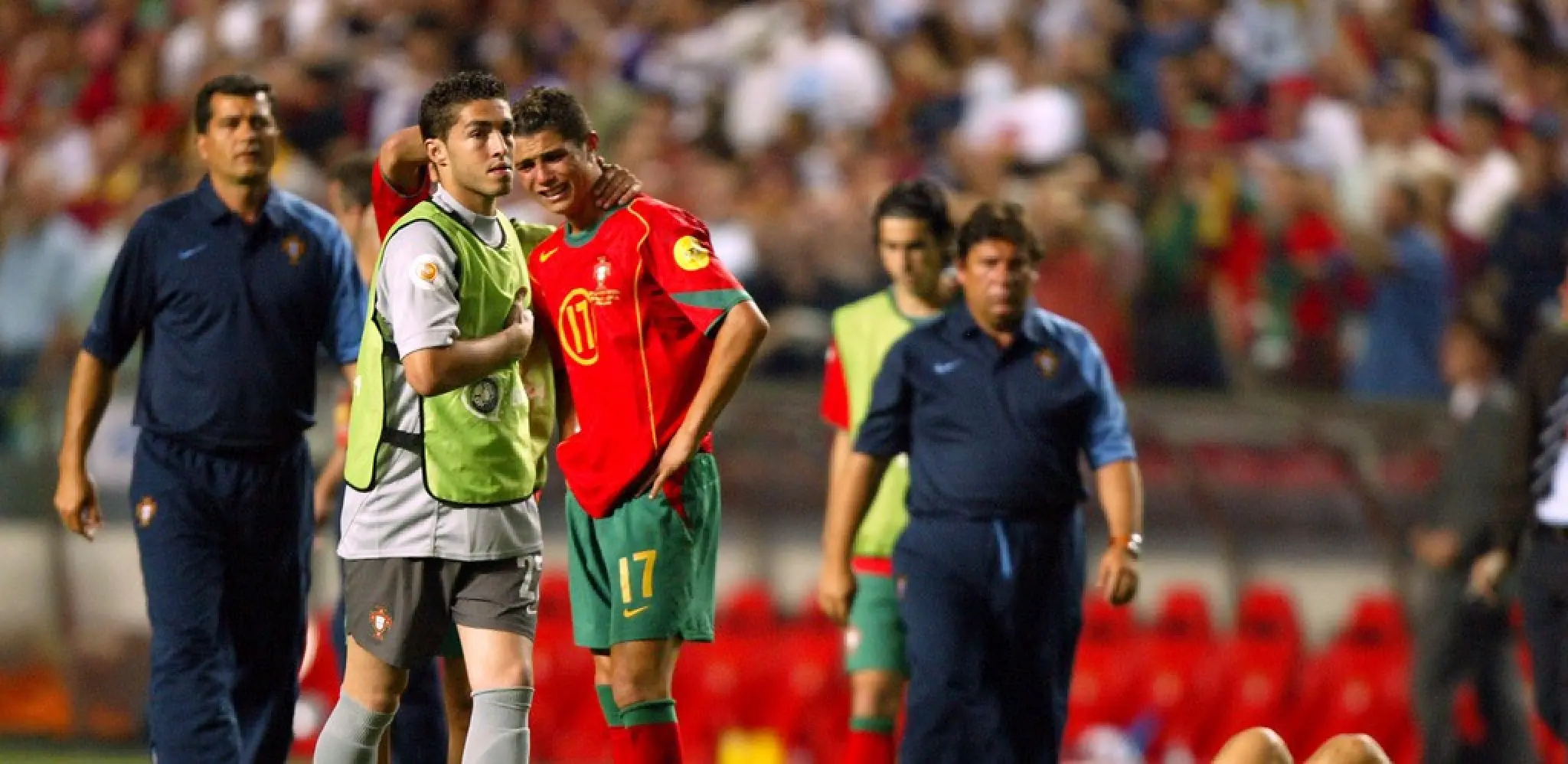
While, William Carvalho, Joao Mario and France-born Raphael Guerreiro were all fixtures in Santos’ side after being losing finalists in the Under-21 European Championship last summer.
Unable to overcome Sweden, who similarly held on staunchly and stubbornly to deny the more expansive side, they were able to dish out some of that same medicine in passionate Paris and contribute to pipping heavyweights France only a year later.
Perhaps the same fate now awaits one of disappointed but fantastically talented French youngsters Anthony Marital or Kingsley Coman a few more major tournaments down the line, on someone else’s turf.
Defence a weakness and strength
For all of Eder’s inspiration on the evening, a peripheral character sensationally surpassing the leads, and the goals of Ronaldo, Nani and Ricard Quaresma throughout the finals, it is the defence that truly steered the Navigators to success.
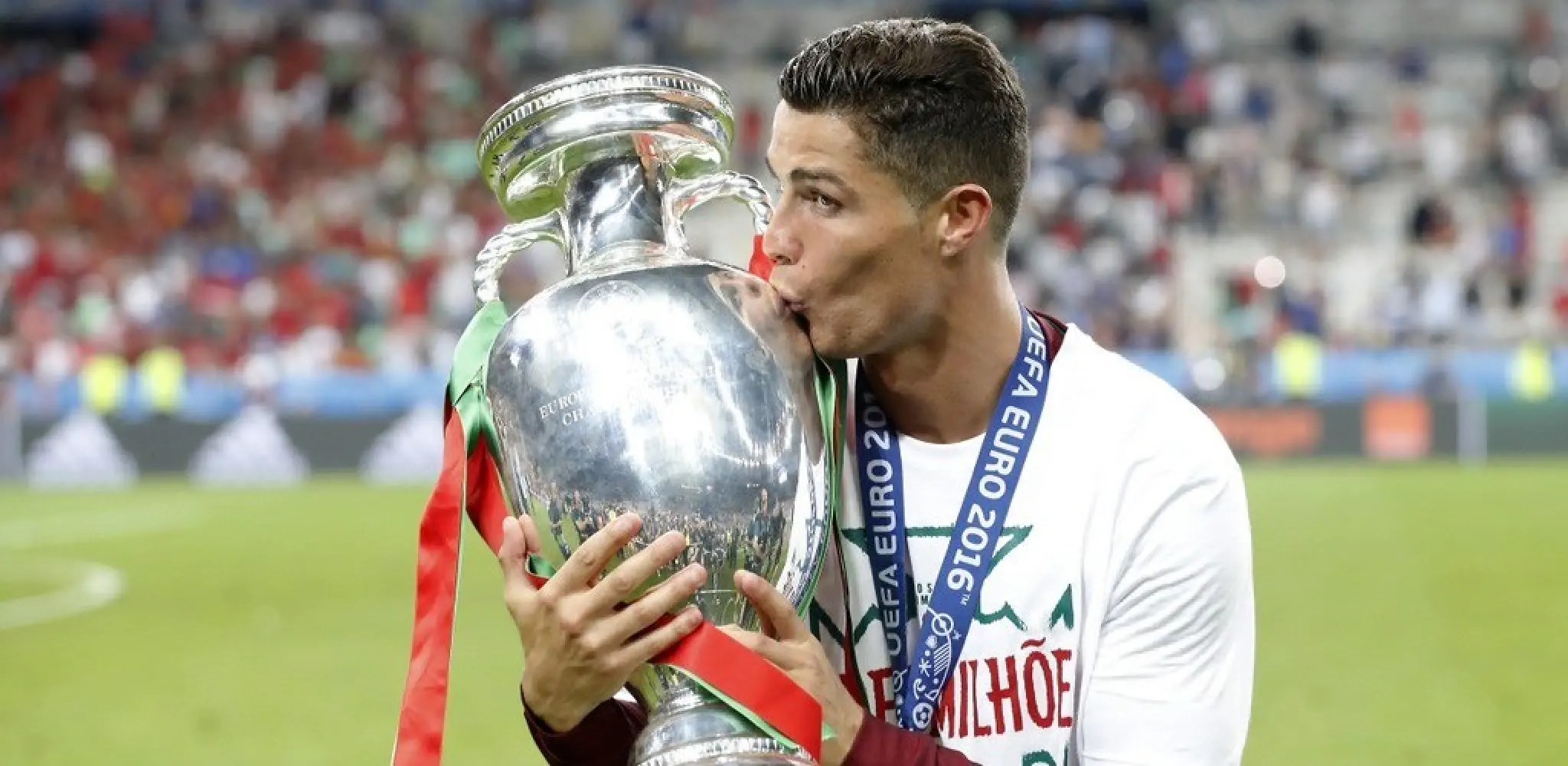
Portuguese victory at the Stade de France was as much down to tactician Santos’ exemplary organisation and his defence’s diligent drive as it was to the oft glory grabbing forwards.
But, therein lies the problem as eager Portuguese eyes turn to Russia, and qualifying for the 2018 World Cup. With the Navigators’ success built on a solid spine of savvy and experienced centre halves, Santos may have to change style with the future in mind.
Evergreen Ricardo Carvalho defied expectation to feature in the squad for France aged 38, and surely cannot continue on the road to Russia, while fellow rearguard leaders Jose Fonte, Pepe and Bruno Alves are all also the wrong side of 30.
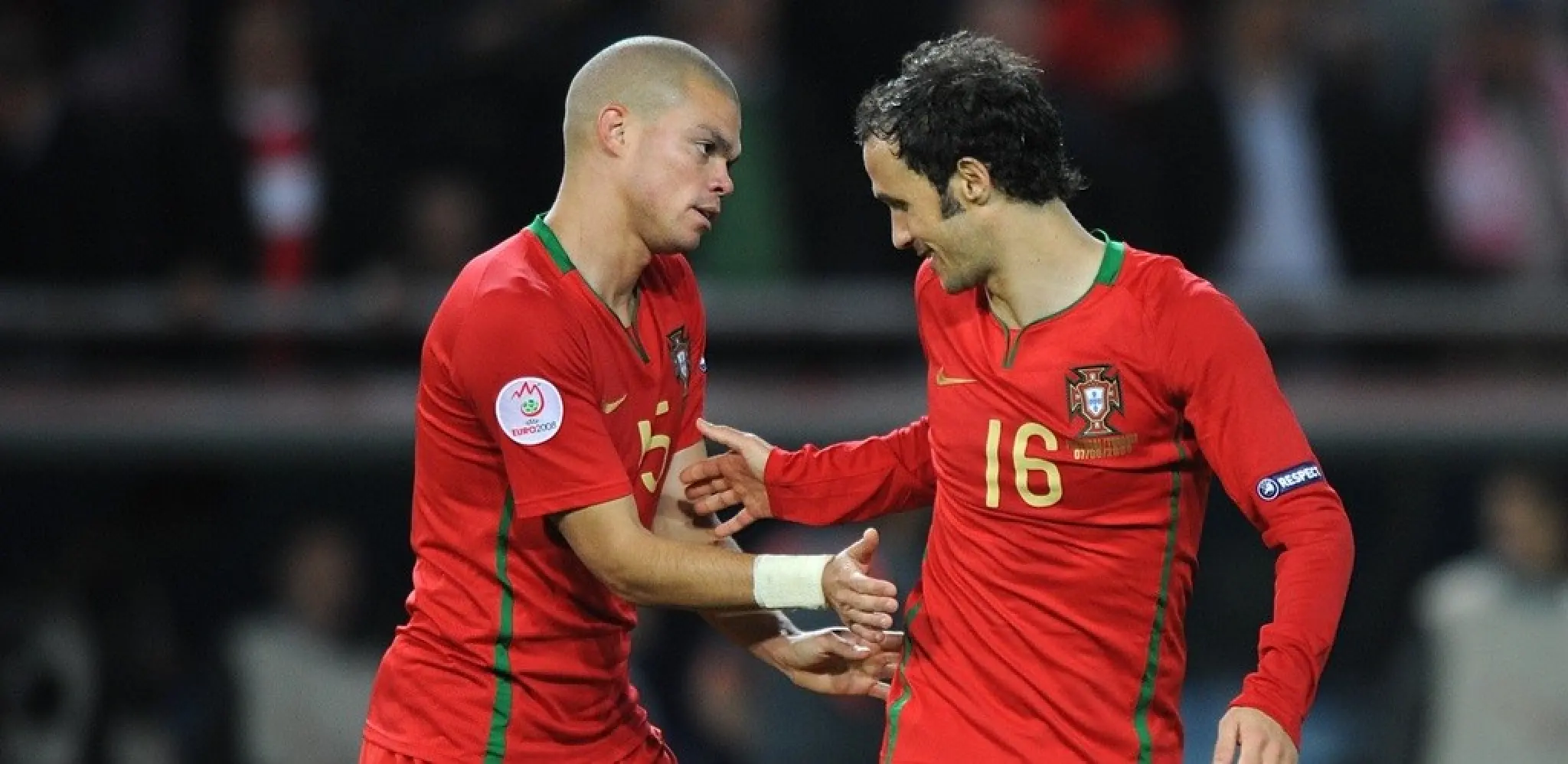
There were fears their lack of pace would be exposed in these finals, though cracks were cleverly papered. But young guns need to be blooded in that position, even if Pepe and Fonte can hold out for one more major tournament.
Tobias Figueiredo, loaned to Nacional from Sporting Lisbon’s production line and still only 22 is the most familiar name from the next crop that springs to mind. Though yet to live up to his long-lauded potential, Portugal may hope he is granted significant game time in the coming season to show his value.
After all, it seems Portugal’s current most populous position of strength is under threat, as star centre backs do not grow on trees.
Will Santos steer the ship to Russia?
Having arguably achieved all he reasonably can with a Portugal vintage edging past its best though, will Santos also be there to guide his Navigators (1/2 favourites to win 2018 World Cup qualifying Group B) to the next step?
It has taken Portugal quite some time to find the perfect coaching fit but, having gone incredibly undefeated in this tournament, will the former Greece (no kidding) boss wish to tarnish his legacy with a moment of transition ahead?
Punters will expect iconic all-time top scorer Ronaldo to still spearhead the charge to Russia, but there are doubts as to whether Nani and Quaresma (29 and 32 respectively) will be able to stick to such high standards.
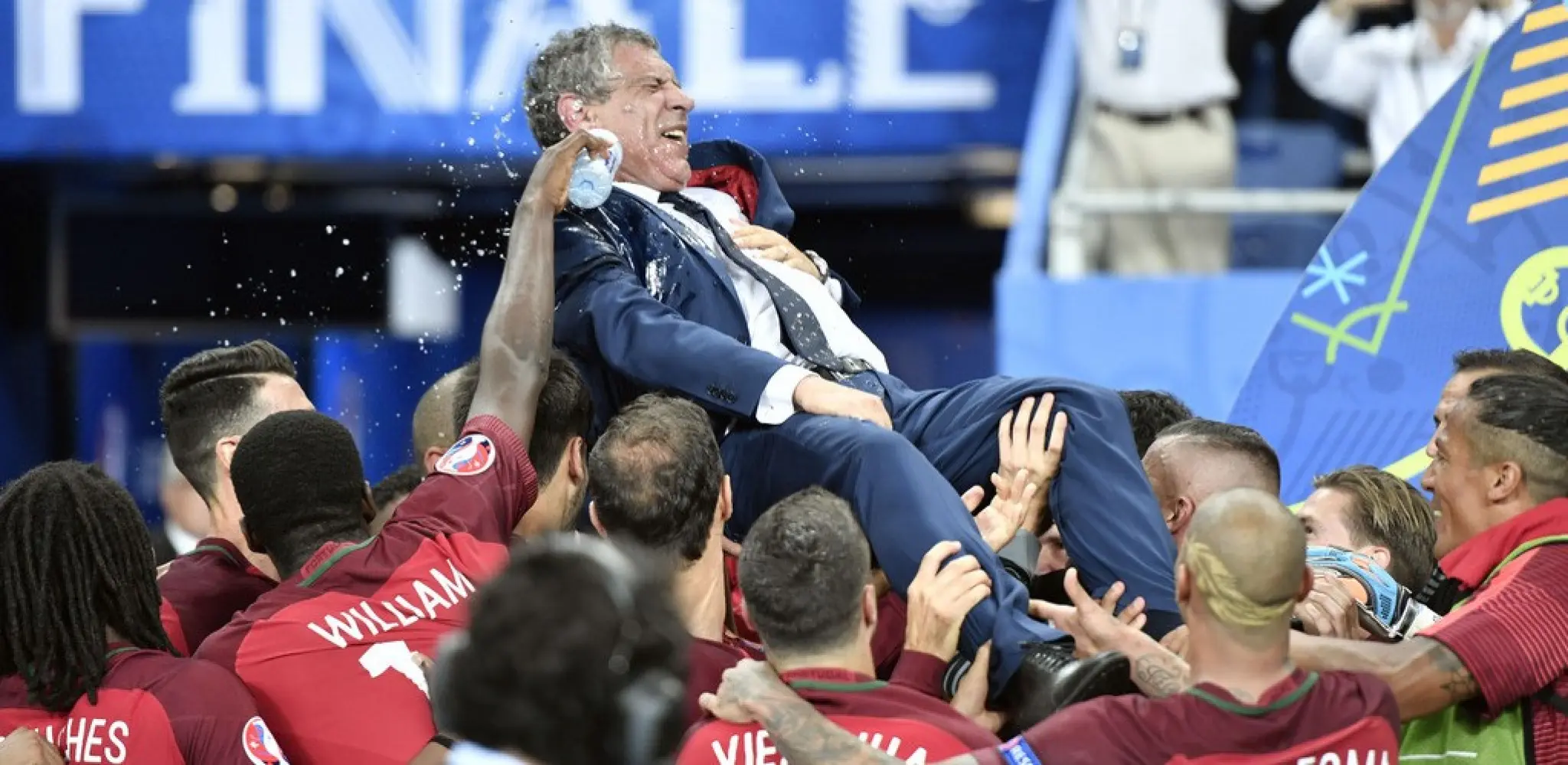
The good news is that Portugal possess some of Europe’s brightest potential talents in midfield and attack in impressive Renato Sanches, Andre Gomes and Rafa Silva, all of whom featured in this success, plus trio Bernardo Silva, Ruben Neves and Goncalo Guedes who didn’t make the Euro 2016 roster.
So, without the heirs apparent to Pepe, Carvalho and co, perhaps next time viewers see Portugal in the finals of a major competition, they will be relying on a fresh focus with their attacking talents instead.
Related

